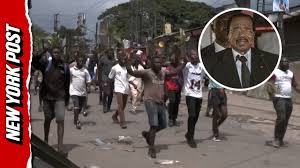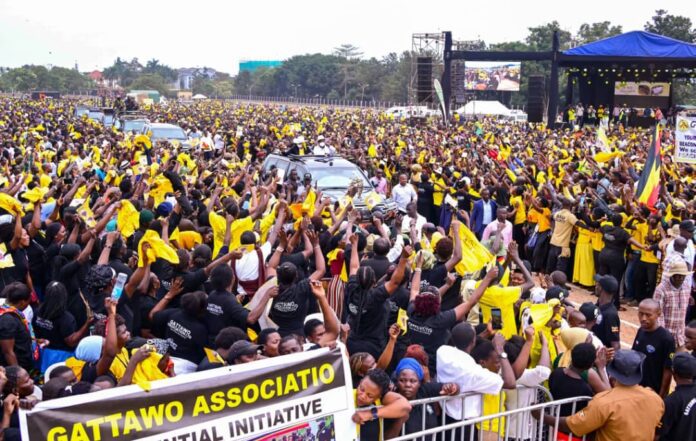Cameroon’s long-serving President Paul Biya, aged 92, has been declared the winner of the country’s October 12 presidential election, securing his eighth term in office.
The announcement has sparked violent protests across the nation, as opposition supporters claim the vote was rigged.
According to official results released by the Cameroon Electoral Commission on Monday, Biya received 53.66% of the vote, defeating his main challenger, Issa Tchiroma Bakary, who garnered 35.19%.
While Biya’s supporters celebrated the victory, angry crowds took to the streets in Douala, the country’s commercial hub, and other cities.
Protesters burned tyres, blocked roads, and clashed with police. Security forces responded with tear gas to disperse the demonstrators, leaving several people injured.
Witnesses in Douala said some protesters wore masks and used sticks and stones to fight back against heavily armed riot police. In some parts of the city, streets were deserted, and businesses remained shut down.
The opposition reported that at least four people died over the weekend, while more deaths were reported on Monday in the northern city of Garoua, where Tchiroma claimed two civilians were shot outside his home.
In a statement on X (formerly Twitter), President Biya expressed sadness over the violence and called for calm.
“My first thoughts are with all those who have unnecessarily lost their lives as a result of post-election violence,” Biya wrote.
The government dismissed opposition claims of vote rigging, saying the election was free and fair.
Opposition leader Issa Tchiroma Bakary, a former government minister who defected from Biya’s party earlier this year, has rejected the results, insisting that he won the election.
“We all know that the majority of Cameroonians voted for change,” said one protester in Douala. “It is unacceptable that President Biya could win in regions affected by conflict.”
Political analysts warn that the unrest could escalate if dialogue is not initiated soon.
“Biya now has a notably shaky mandate, given that many of his own citizens do not believe he won,” said Murithi Mutiga, Africa Program Director at the International Crisis Group.
“We call on Biya to urgently initiate national mediation to prevent further escalation.”
Paul Biya has ruled Cameroon since 1982, making him one of the world’s longest-serving leaders. In 2008, he scrapped the country’s presidential term limits, allowing him to stay in power indefinitely.
His rule has been marked by economic stagnation, corruption, and ongoing conflict in the English-speaking regions, where separatists have been fighting for independence since 2017.
Despite these challenges, Biya has maintained a firm grip on power, backed by a loyal military and political elite. His re-election means he could remain in office until nearly age 100.
Cameroon, one of Africa’s top oil and cocoa producers, is struggling with high unemployment and inflation. Many citizens, especially the youth, are frustrated with the lack of political change.
In a surprising twist, even Biya’s daughter Brenda Biya briefly posted a TikTok video earlier this month, urging voters not to re-elect her father — a clip that was later deleted.
Analysts say Biya’s victory reflects a divided nation — one longing for stability, yet weary of a leader who has held power for more than four decades.



